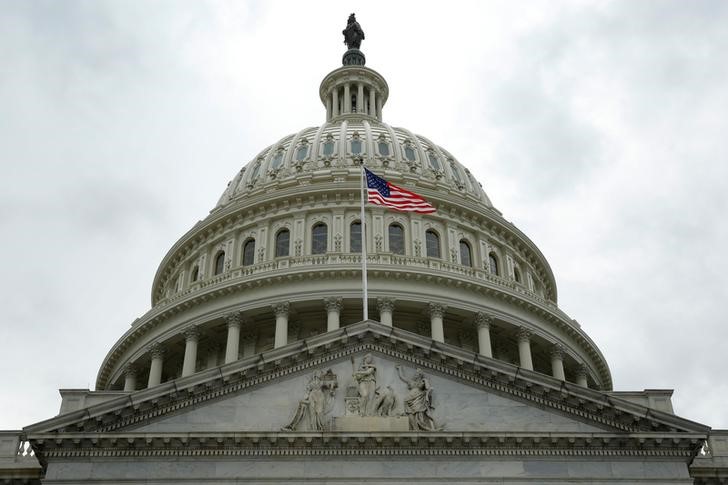Gold soars to record high over $3,900/oz amid yen slump, US rate cut bets
Investing.com - More Americans blame President Donald Trump and Republicans in Congress than Democrats for the current shutdown of the U.S. government, although many say they are unsure, according to a Washington Post poll.
In a survey conducted by the paper via text messages on Wednesday, 47% of a random sample of 1,010 U.S. adults said Trump and Republicans were more responsible for the partial government shutdown than Democrats. Those respondents cited a refusal by the White House and the GOP to compromise, Republicans’ control of the presidency and both chambers of Congress, and Trump’s actions in particular.
Some 30% placed the blame on Democrats, saying the party had refused to compromise or had simply taken positions to just oppose Trump.
Meanwhile, 23% said they were not sure either way.
The poll echoes public opinion putting much of the blame on Republicans during several previous government shutdowns, including two during Trump’s first term in office, the Washington Post said. The paper noted one exception: a near federal government shutdown in 2023 which was blamed on then-President Joe Biden and his Democratic colleagues.
Roughly 41% of Americans participating in the poll said they were "somewhat concerned" by the shutdown, with around one quarter describing themselves as "very concerned."
Over 8 in 10 Democrats and 7 in 10 independents said they were worried about the shutdown, although fewer than half of Republicans said the same, according to the Washington Post.
Overall results from the poll, which was weighted to match U.S. population demographics, partisanship and 2024 vote decisions, had a margin of sampling error of plus or minus 3.5 percentage points, the Post said.
The federal shutdown began earlier this week, with Trump and Republicans partly at an impasse with Democrats over an extension to federal health insurance subsidies. Although investors have largely shrugged off the drama, with stocks continuing to touch record highs, key economic data -- including monthly nonfarm payrolls that could factor heavily into the trajectory of Federal Reserve monetary policy -- is likely to be delayed.
